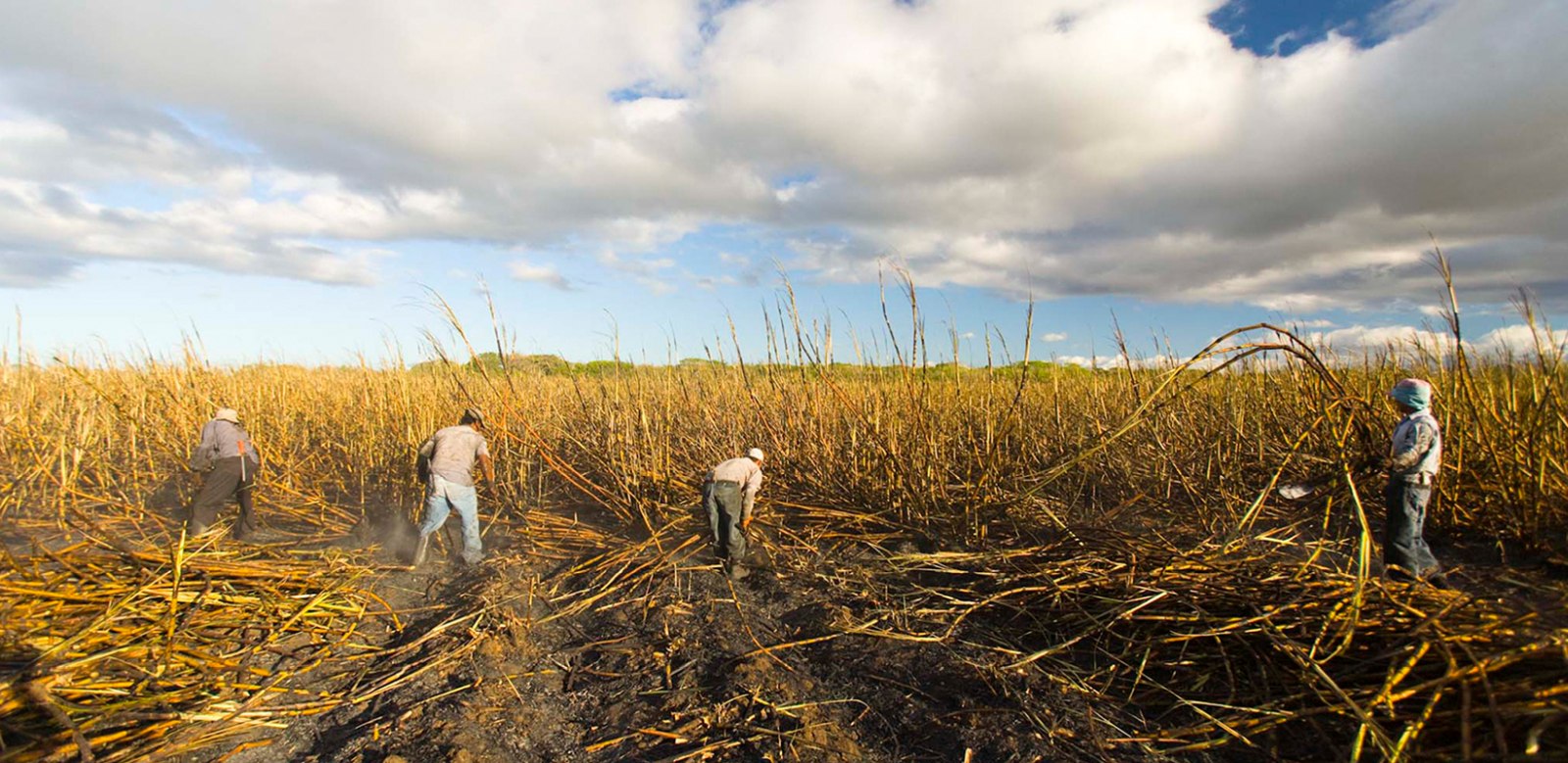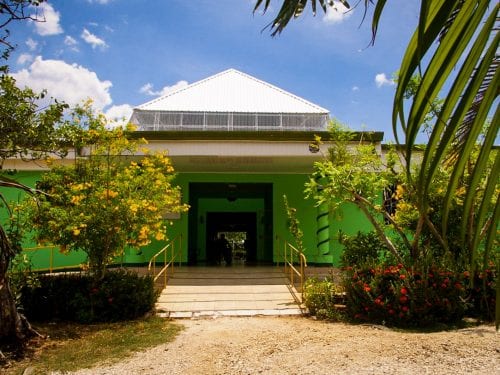
We posed this question to both those who sell herbicides as well as specialists in the field of agronomy and medicine, and all agree that prolonged use of these products in large quantities has a potential health risk for the person using it, especially if basic precaution and protection measures are not taken into account.
It is quite common to see people with a pump sprayer on their backs, spraying the chemical diluted in water around their yard or the lawn of their garden. Normally, this equipment is used as an alternative to avoid using tools like machetes or lawn mowers.
The Voice of Guanacaste consulted three establishments that sell these products in the canton of Nicoya to find out the basic safety measures that should be followed by those who use them. Let’s start with the types of herbicides. There are a lot registered with the State Phytosanitary Service, and their sale and use are regulated by the Ministry of Agriculture and Livestock (MAG- Ministerio de Agricultura y Ganaderia), the Ministry of Health and the National Animal Health Service (SENASA- Servicio Nacional de Salud Animal).
The establishments consulted were El Arriero Guanacasteco Agro Veterinarian, La Yunta Agro Veterinarian and Almacen El Colono. We were able to verify that each one of them had the respective legal permits.
Gabriela Fernandez, manager of El Arriero Guanacasteco Agro Veterinarian, explained that one of the most popular herbicides is Roundup, which is used to “burn” weeds around homes.
The amount that they recommend to use is 6 to 7 ounces of diluted product in a sprayer with a capacity of 20 liters of water.
Renzo Restrepo, agronomist at La Yunta Agro Veterinarian, commented that there are selective herbicides like 2-4 D that eliminate plants with wide leaves and not the surrounding grass.
In addition, he indicated that sales are regulated for some herbicides and can only be supplied with prior authorization by an agronomist.
Such is the case with Gramoxone and Paraquat, which are used only for large fields of agricultural crops and not for domestic use.
Oscar Cortez, from Almacen El Colono, pointed out that there are also herbicides such as Glifocol and Evigrass that have the active ingredient glyphosate, which reduces plant growth until they dry up completely.
Usually once the herbicide is applied, the process takes eight days for the weeds to dry up completely.
Oscar Cortes, representative of Almacen El Colono in Nicoya, demonstrates the correct way to use the sprayer to spread the herbicide.
The price of these products, depending on the brand, is between ¢2,700 and ¢4,500 ($5 to $8.50).
Regarding the possible risk of contamination of groundwater, Alejandro Rojas, chemist from the Phytosanitary Registration Unit of MAG, did not rule it out although he considered it unlikely because the chemical normally stays on the surface of the ground.
“It is very hard for [the contamination of aquifers] to occur when its use is only domestic, although it could happen occasionally when its use is very intensive, especially in large fields,” he indicated.
Risk of Poisoning
Johnny Orozco, head of emergency services for La Anexion Hospital, pointed out that herbicide poisoning occurs mainly due to carelessness and people misusing these products.
“Many people store the herbicides in soda bottles and then another person and even children accidentally open it without realizing the risk of poisoning,” he said.
In addition, Orozco mentioned that those who use these chemicals should wear gloves, a mask, rubber boots, plastic glasses and have pants and a long sleeve shirt set aside exclusively for that purpose.
Then the person should shower immediately to avoid residues of the herbicide remaining on the skin.
Some common symptoms of poisoning are: headache, dizziness, cough, vomiting, diarrhea, constant nasal drip and blurred vision, among others.
If these symptoms occur, call the National Poison Control Center (Centro Nacional de Intoxicaciones) immediately at 2223-1028.
|
What to Do in Case of Poisoning? Take the patient to the doctor and give the doctor the herbicide’s label or pamphlet. Identify symptoms of poisoning such as red eyes, headache, stomach ache, nausea, coughing, vomiting, diarrhea and constant nasal drip, among others. Shower immediately and put on clean clothes. Do not give unconscious people anything to drink or induce vomiting. Call the National Poison Control Center immediately at 2223-1028. Source: Emergency Department of La Anexion Hospital. |







Comments